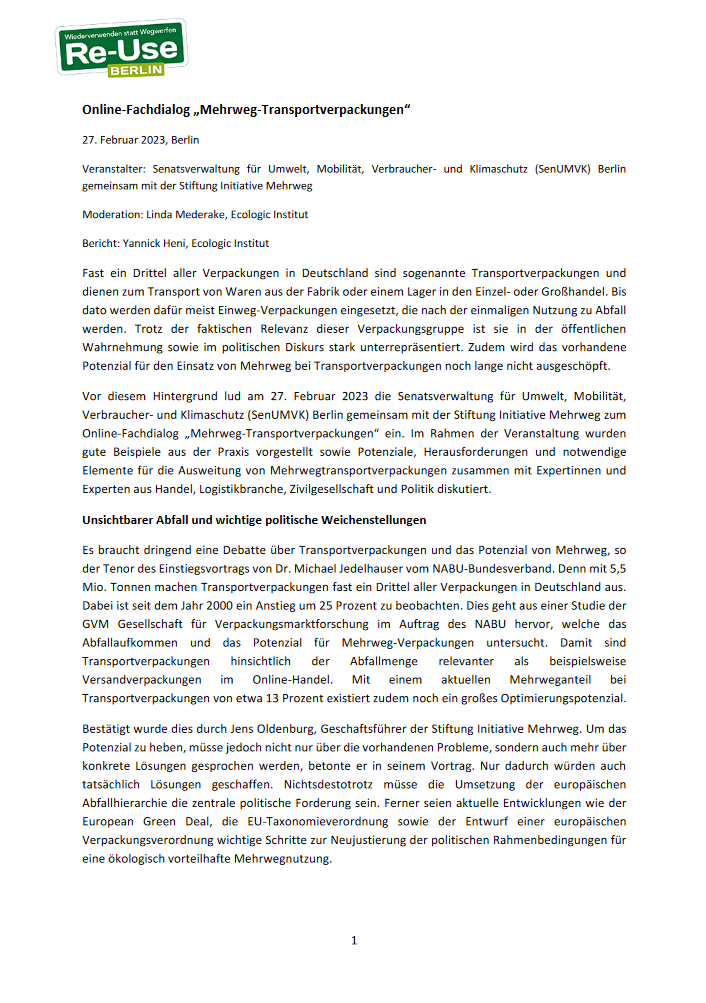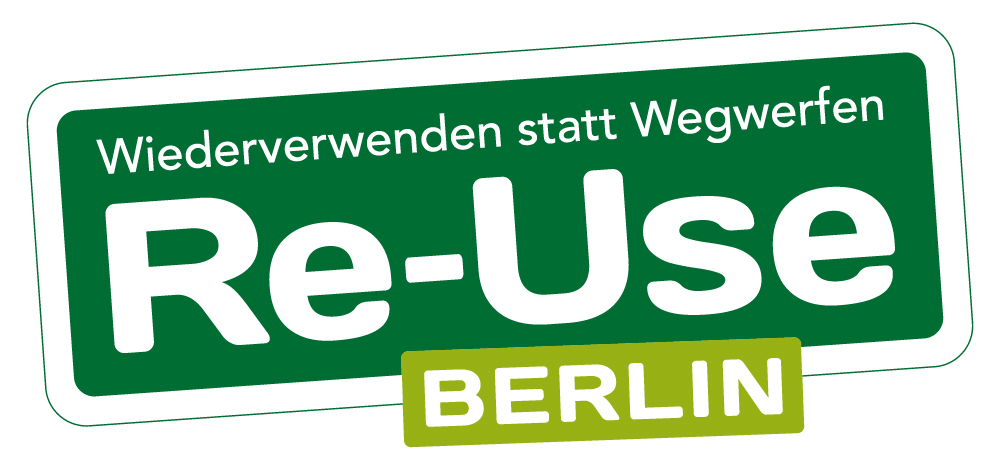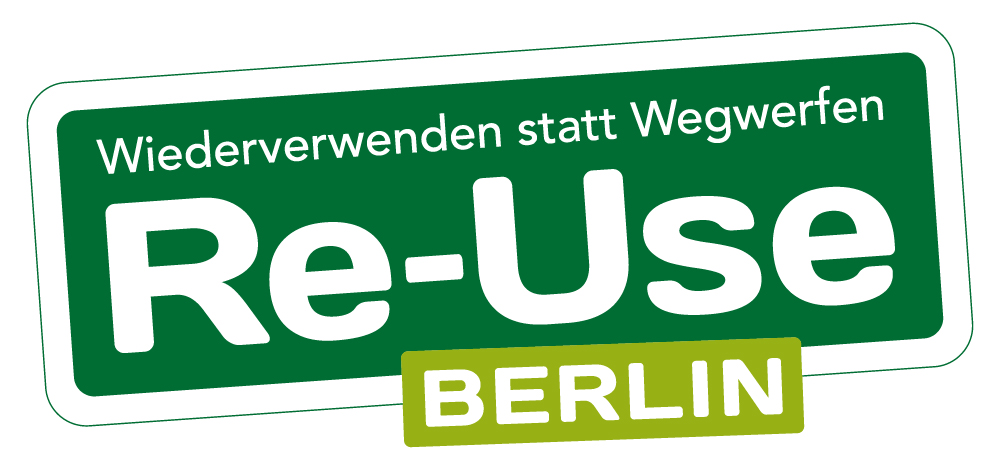Circular Diversity: Creative solutions to promote the re-use of second-hand goods – Re-use Berlin
- Event
- Date
-
- Location
- online
- Speaker
- Hashtag
In a world grappling with environmental challenges, the concept of circular economy and re-use in particular has emerged as a crucial pillar of sustainability. Re-use can play a pivotal role in reducing waste generation, conserving resources, and minimizing the environmental and social impact of production and consumption.
Today, the state of re-use showcases both progress and untapped potential. Many individuals and organizations have embraced the idea, fostering a thriving second-hand market and promoting the value of pre-loved items. However, resource consumption is still stagnating at best and disposable products continue to be produced and consumed in increasing numbers while re-use approaches often remain niche.
Looking ahead, the possible future potential of re-use is tremendous. As we strive for a more circular economy, re-use can unlock economic opportunities, foster innovative business models, and create local employment. It can empower communities, promote social inclusion, and enable equitable access to affordable goods. By integrating technology, design thinking, and collaborative efforts, we can harness the transformative power of re-use to build a sustainable future for generations to come.
The online expert dialogue "Circular diversity: creative solutions to promote the re-use of second-hand goods" took place on 10 October 2023, organized by Ecologic Institute for the Berlin Senate Department for Urban Mobility, Transportation, Climate Action and the Environment (SenMVKU). The aim of this event was to present the variety of existing creative approaches to promote the re-use of second-hand goods. The diverse spectrum of circular solutions presented ranges from classic second-hand trading to models of swapping and sharing, public and private, digital and analog, from local to large scale approaches. The aim was to explore where opportunities for mutual learning and cooperation lie, but also what may be structural contradictions. Based on the examples, current barriers as well as potentials and essential elements for the successful strengthening of re-use of second-hand goods have been discussed. Therefore, the event brought together perspectives from different stakeholders involved in the re-use of second-hand goods, including policy, research and various kinds of businesses.
The event was held in German.
Please find the recordings on our YouTube channel. The presentation slides can be found here:
Martin Gsell, Öko-Institut e.V. (presentation slides not available)
Aktuelle Daten zur Wiederverwendung von Gebrauchtgütern bei Haushalten in Deutschland
Sabine Rolf, WIR e.V.
Second-hand Kaufhäuser – Alles außer neu
Ina Schulze, SenMVKU
Berliner Re-Use Aktivitäten in a nutshell
Birgit Nimke-Sliwinski, Berliner Stadtreinigung AöR
Neue Konzepte im Quartier
Frieder Söling, NochMall GmbH
Erfahrungen aus 3 Jahren NochMall – dem Gebrauchtwarenkaufhaus der BSR
Fabain Gsell, allerleih e.V.
Die "Bibliothek der Dinge" als kollektives Lager: Unpraktische Utopie oder praktikable Praxis?
Melissa Schmidt, Bauteil- und Materialbörse Kassel
Bauteil- und Materialienbörse Kassel – Gründungsgeschichte einer gGmbH für eine zirkuläre Baukultur
Daniel Reinhardt, Trödelspende
Einblicke in den Aufbau eines gemeinnützigen Online-Marktplatzes
Anne Neurath, BUND Berlin
Schenkboxen und Tauschevents: Erfahrungen aus verschiedenen lokalen Projekten
Doris Schoger, Rebound Stuff
Urban Sourcing und die Action-Behavior Gap








